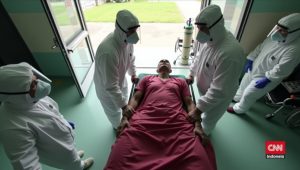
Human Metapneumovirus (HMPV) is a contagious respiratory virus that poses a significant threat to public health, particularly in countries like Indonesia, where tropical climates and dense populations facilitate the spread of infectious diseases. While medical interventions are essential, maintaining good hygiene practices is a simple yet powerful tool in combating HMPV. This article explores the critical role of hygiene in preventing the spread of HMPV in Indonesia.
Understanding HMPV and Its Spread
HMPV causes respiratory illnesses ranging from mild cold-like symptoms to severe conditions such as bronchiolitis and pneumonia. The virus spreads through respiratory droplets, direct contact with infected individuals, and contaminated surfaces. Vulnerable groups, including children, the elderly, and immunocompromised individuals, are at higher risk of severe outcomes.
In Indonesia, the spread of HMPV is exacerbated by environmental factors such as high humidity and limited access to healthcare in rural areas. Therefore, adopting hygiene practices is crucial to reduce transmission and protect at-risk populations.
Key Hygiene Practices to Prevent HMPV
1. Regular Handwashing
Handwashing is one of the most effective ways to prevent the spread of HMPV. Follow these steps:
- Wash hands with soap and water for at least 20 seconds, especially after coughing, sneezing, or touching public surfaces.
- Use hand sanitizer with at least 60% alcohol if soap and water are unavailable.
- Encourage children to wash their hands frequently, particularly before eating and after playing.
2. Disinfecting Surfaces
HMPV can survive on surfaces for several hours, making surface disinfection critical:
- Clean frequently touched surfaces, such as doorknobs, light switches, and mobile devices, with disinfectants.
- Regularly wash toys, utensils, and other shared items, especially in households with young children.
3. Maintaining Respiratory Hygiene
Good respiratory hygiene can significantly reduce the spread of HMPV:
- Cover your mouth and nose with a tissue or elbow when coughing or sneezing.
- Dispose of used tissues immediately and wash hands afterward.
- Wear a mask if you have symptoms of respiratory illness to protect others.
4. Promoting Cleanliness in Public Spaces
Public spaces, such as markets, schools, and public transportation, are hotspots for virus transmission. Measures to improve hygiene in these areas include:
- Installing handwashing stations in public places.
- Encouraging the use of masks in crowded areas.
- Regularly cleaning and disinfecting public facilities.
The Broader Impact of Hygiene
Adopting hygiene practices not only reduces the spread of HMPV but also helps prevent other respiratory infections, such as influenza and COVID-19. In Indonesia, where respiratory illnesses are a leading cause of morbidity, improved hygiene can alleviate the burden on healthcare facilities and protect vulnerable populations.
Community and Government Initiatives
Combating HMPV requires collective efforts from individuals, communities, and the government. Public education campaigns can raise awareness about the importance of hygiene, while government policies can ensure access to clean water, sanitation, and hygiene facilities, particularly in rural areas.
Schools and workplaces can also play a vital role by promoting hygiene practices and providing resources like hand sanitizers and cleaning supplies.
Conclusion
Hygiene is a cornerstone in the fight against HMPV in Indonesia